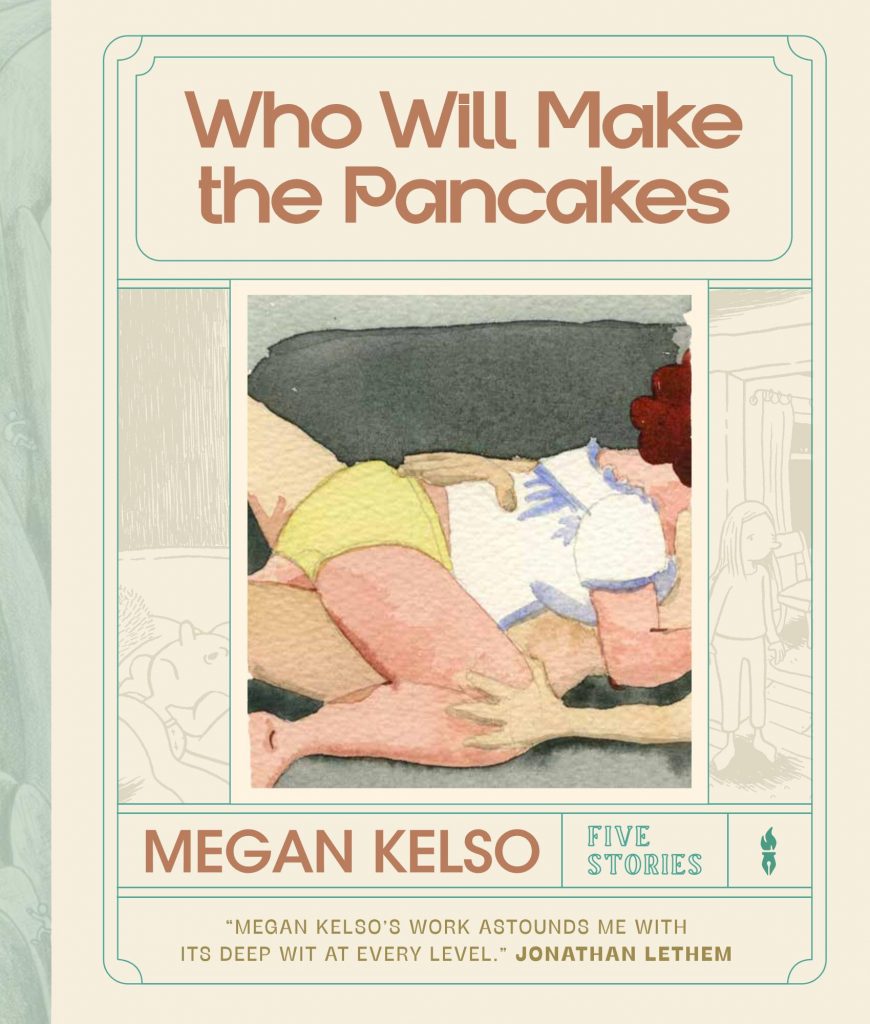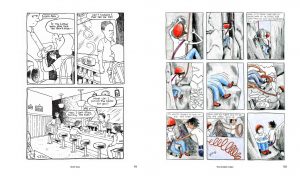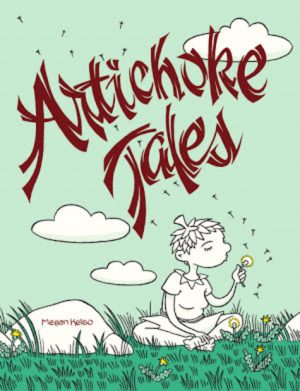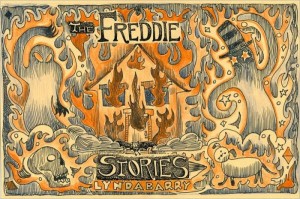Review by Frank Plowright
Who Will Make the Pancakes is a suite of five stories, at their core each dealing with a lack of fulfilment. They’re complicated, yet accessible, drawn with considerable charm, and the versatile Megan Kelso changes her approach for each of them. She’s far from the most prolific of creators, so any new release is something to celebrate.
Opener ‘Watergate Sue’ actually dates from 2007, was serialised in the New York Times Magazine, and runs three parallel narratives. In the present day Sue is pregnant and consulting her mother and older sister for advice. Her mother isn’t very forthcoming, but Josie recalls her mother’s pregnancy obsession with the Watergate events, and the stages are wittily benchmarked as the cover-up unravels. How Sue is named is wonderful, righting a wrong for Johnny Cash, while the third strand is 1960s style housekeeping tips or adverts for cleaning products.
‘Cats in Service’ is more whimsical. Carol inherits a number of cat servants, and their dedication frees her from housework, but over a period of several years guilt sets in. Should the cats be seeing to her every need, or should they be living more natural lives? The impossible is just delightfully accepted in this short black and white strip.
Although concealed, Florence is the collection’s cover star, a woman of late middle age painted in bright watercolour. From what we learn of her in ‘The Egg Room’ she has regrets, one being never giving birth, but her daydreams compensate, providing a consistently idealised alternative unrestricted by reality. Once she actually made avant garde films, now she lectures on her past while unfurling new reels in her head. It’s beautifully put together, a real heartbreaker in some respects, but there is a level of contentment and acceptance about Florence.
The 1940s provides the background for ‘Korin Voss’, named after its lead character who’s trapped in the times. When her husband leaves they have three children, and he’s unreliable when it comes to supporting them. Employment is no problem when the men are away fighting World War II, but the possibility of their return is a double-edged sword. While the other stories have their sad moments, and the cheery art seems to tell a different story, this is the sole tragedy, a meditation on the hopes and possibilities for women that were whisked away in the late 1940s.
Kelso closes with ‘The Golden Lasso’, set in 1980, but a universal meditation on the pain of adolescent longing. Diana, Elyse and Mara hang out together and go rock climbing together, but Diana feels herself the spare wheel sometimes. When sent to buy equipment she picks up a yellow clothesline that she considers the equivalent of Wonder Woman’s lasso that compels people to tell the truth (although Kelso never names DC’s property). When she uses it, she receives answers, some more honest than she’d like. Kelso transmits the joy of achievement associated with climbing and its dangers, and the heartbreak of unrequited first love. It’s a clever story even before a disclosure that completely redefines someone.
According to Kelso’s brief notes at the back of the book, all but ‘Watergate Sue’ are expanded, sometimes greatly expanded, versions of earlier works. It speaks to an artistic commitment, while the broad range of both approach and subject makes for a chocolate box delight. If only there was work from Kelso to treasure more frequently.







